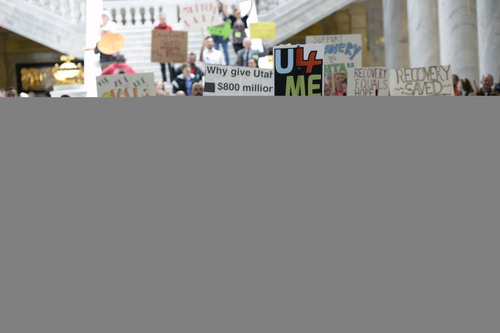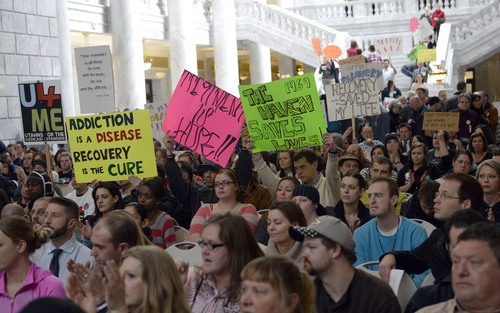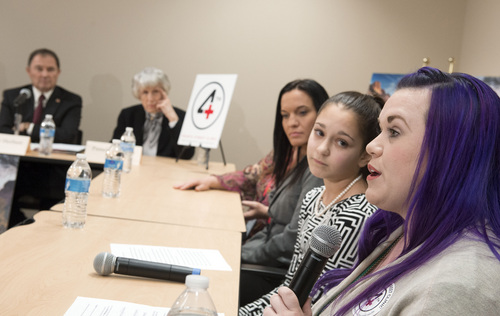This is an archived article that was published on sltrib.com in 2014, and information in the article may be outdated. It is provided only for personal research purposes and may not be reprinted.
In deferring a decision about whether to expand Medicaid, Utah's Republican legislative leaders may risk the ire of voters.
Most voters — 76 percent — support using federal funds to cover the full expansion group, 111,000 poor and uninsured, according to a Brigham Young University poll.
Researchers at BYU's Center for the Study of Elections and Democracy published a thorough analysis on their blog. Results from the April 2014 survey of the Utah Voter Panel (voters recruited during elections) show clear favorites among the many expansion scenarios being debated.
• Forty-three percent favor Utah Gov. Gary Herbert's alternative "Healthy Utah" plan, which would tap public Medicaid dollars to buy private coverage for the same, full expansion population, an estimated 111,000 Utahns earning up to 138 percent of the federal poverty level, or $15,856 annually for an individual.
• Another 33 percent prefer a straightforward Medicaid expansion as envisioned by the Affordable Care Act.
• Thirteen percent say Utah should do nothing, and leave eligibility rules as they are now.
• Eleven percent back Utah House Speaker Becky Lockhart's idea for spending state dollars to extend partial coverage to about 54,000 poor Utahns.
The questions, asked of 721 voters, briefly explained the options being considered and did not identify them as being Herbert's plan or Lockhart's idea.
The margin of error was about 3.5 percent.
Utah's Republican governor has been trying for weeks to hammer out an agreement to expand health coverage in hopes of getting a program approved by the Legislature this summer.
But on Wednesday, Lockhart, R-Provo, said it's unlikely the House would support a plan in a special session.
Senate Majority Leader Ralph Okerlund, R-Monroe, agreed that, unless there was a proposal to rally behind, it would make more sense to defer debate until the regular legislative session in January.
That pushes any decision well past the November election and leaves many poor Utahns without affordable health coverage options until sometime in 2015.
The governor hasn't given up, however, on winning over lawmakers and federal health officials this summer.
"I don't know that there's so much a disconnect as there is concern in the Legislature, and I understand the concern, that they need to do their own due diligence. It's really hard to vote up or down on the Healthy Utah Plan, because we don't have all the details or specifics in place," Herbert said Thursday at his monthly KUED news conference.
He heads to Washington next month to continue negotiations with the Obama administration.
"The work requirement is an issue that keeps coming up," he said. "I'm trying to come up with a better, more fiscally responsible alternative to Medicaid expansion that gives a better outcome to the recipients and the people who need access to health care. So it's not a matter of being fair. It's a matter of doing what is prudent and being fiscally responsible."
Testifying at a Health Reform Task Force meeting Thursday, Utah Department of Health chief David Patton said negotiations with federal officials are going better than expected and could conclude this summer.
"We've learned the federal government can be much more agile than we've experienced before in terms of being able to talk back and forth about issues," instead of having to go through a more formal, waiver process, Patton said.
Tribune reporter Robert Gehrke contributed to this report.
Twitter: @KStewart4Trib







